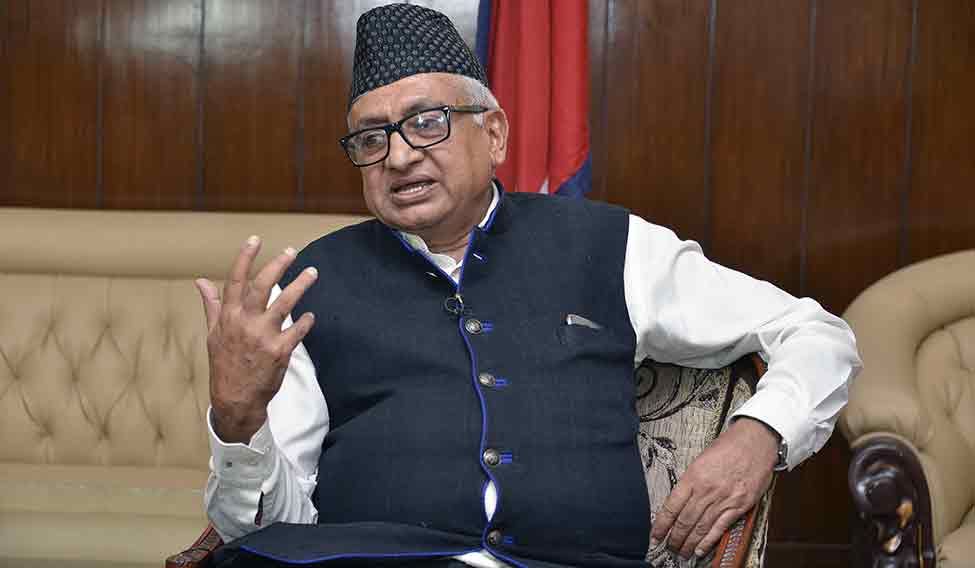In February, when Nepal Prime Minister K.P. Sharma Oli came on a six-day visit to India, he reiterated just one sentiment: he was in India to clear the misunderstandings and apprehensions after Nepal adopted its new constitution. He left, concluding his trip was a success.
Two months later, however, as Oli struggled to save his multi-alliance government from getting toppled, it was he who seemed to have developed mistrust regarding the 'elder brother' on the other side of the open border. A domestic crisis developed in the Himalayan nation, with the Maoists and the Nepali Congress threatening to topple the government, and Oli’s suspicion was immediately directed towards New Delhi. The bitter aftertaste of the winter blockade of goods from India by Madhesi protesters (see box), which led to shortage, black marketing and general discomfort in a nation still recovering from last year's earthquake, hadn’t been sweetened by the subsequent overtures of bonhomie from India.
With newly elected Nepali Congress leader Sher Bahadur Deuba and Maoist leader K.B. Mahara both being in India, on personal trips, in mid-April, ahead of the failed attempt at overthrowing the government, it was easy to conclude that India was orchestrating the fall, though the evidence is only circumstantial. Oli promptly cancelled the India visit of President Bidhya Devi Bhandari, who was to attend the Ujjain Kumbh and also lay the foundation stone of the South Asian University building in New Delhi. Deep Kumar Upadhyay, Nepal’s ambassador to Delhi, who advised against the move, was promptly sacked. Although no official statements have been issued, the talk is that Upadhyay is accused of anti-Nepal activities in collusion with India.
So where did India go wrong? Was it in failing to topple a government that had defied it? Or, was it in losing the goodwill of an ally which it took so much for granted that no prime minister even bothered to visit it for 17 years till Narendra Modi took over? Modi’s overtures to Nepal—the earthquake relief and rehabilitation, promises of building special economic zones and setting up new power lines—have been received well, but in return he hasn’t got gushing gratitude. In fact, several leaders, including Oli, have openly said India should keep out of Nepal’s domestic issues. As Upadhyay had a farewell lunch with foreign secretary S. Jaishankar on May 10, the anxiety on the Indian side was palpable. “How should we improve mutual trust? This was what dominated our conversation,’’ said Upadhyay.
The jury is out on India’s role in the government-toppling attempt, though it is generally accepted that New Delhi was quite aware of what was happening, whether or not it played an overt part in the coup. “New Delhi’s folly is in not realising that we can no longer behave and act in Nepal as before,” said Major General (retd) Ashok Mehta, an expert on Nepal politics. “The new political class, across party lines, feels that Nepalese independence and sovereignty have to be respected. They are still smarting over how Jaishankar marched into Kathmandu, demanding the constitution be amended. India needs to use discretion and backchannels, more so than ever before.”
A recent incident clearly indicates Nepal’s rising self-assertion. Earlier this month, a group of armed Nepali policemen and civilians crossed the border near Pilibhit, Uttar Pradesh, and took back a Nepali woman, Bandana Ojha, who they claim was forcibly married to Ankush Gupta, an Indian citizen. Indian authorities were left stunned at not even being consulted, let alone being approached for help.
It is obvious that New Delhi wouldn’t mourn the Oli government being toppled. India didn’t even have to do much during this round. With the Maoists, an alliance partner, and the opposition Nepali Congress teaming up, Oli couldn’t have continued for too long. But India failed to see China’s rising influence in Nepal’s internal matters. “China previously kept away from these matters. But this time it told Prachanda and his Maoists that upsetting a Left government was certainly not in either’s interest,” explained Mehta. Prachanda, of course, was appeased with a nine-point agreement that assured him of becoming prime minister and of withdrawing cases against Maoists. The important point here is the Chinese hand, which succeeded in its mission, while India faltered in whatever its mission was.

Upadhyay, who returns to Kathmandu, was a Nepali Congress member and was appointed ambassador by the previous regime. In clever diplomatic language, he blamed Oli for the present friction in Indo-Nepal ties. “I tried my best, but there were hidden agendas on both sides,” he told the media before his departure. “To clap, both hands have to move towards each other, the speed of either hand is immaterial.”
“Our relation with India is unique; it cannot be replaced by any other,” said Upadhyay, pointing out that China could never become the artery for supplies that India is. “We can’t change geography, our terrain. The northern side of Nepal sees even more avalanches after the quake.” Cancelling Bhandari’s visit was a bad idea, he said. He, however, stressed that the visit was not really cancelled, but suspended for the near future till Nepal was better prepared. Near future has an ominous ring to it where India’s neighbourhood policy is concerned. The foreign secretary level talks between India and Pakistan, suspended after the Pathankot attacks in January, were to be held in the near future. They haven’t happened yet.
Upadhyay, however, cautioned India to “understand the sentiments of a landlocked nation”. Landlocked or otherwise, India would do well to understand not just the sentiments but the rising aspirations of its smaller neighbours. Gifting SAARC satellites and access to NAVIC navigation are no longer enough to keep younger siblings happy in the new world order.








